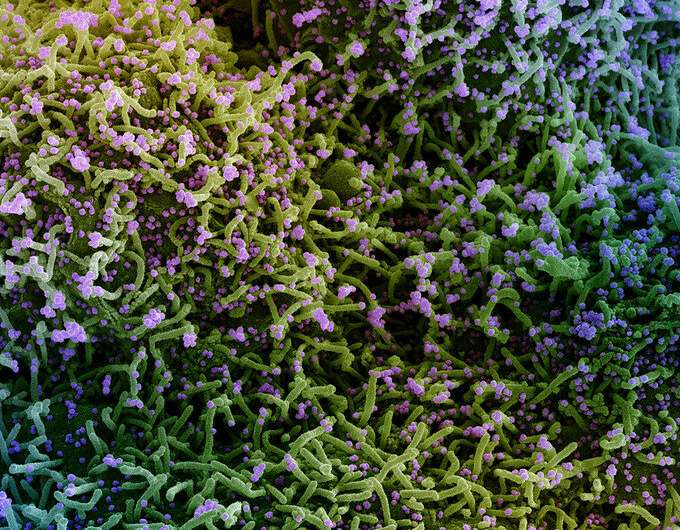Scientists urge pursuit of universal coronavirus vaccine

A growing body of scientific evidence, considered together with ecological reality, strongly suggests that novel coronaviruses will continue to infect bats and other animal reservoirs and potentially emerge to pose a pandemic threat to humans. To counter future coronavirus outbreaks, the global scientific and medical research community should focus a major effort now on three goals: characterize the range of coronavirus genetic diversity in multiple animal species; better understand coronavirus disease pathogenesis in laboratory animal models and people; and apply this knowledge to the development of long-lasting, broadly protective coronavirus vaccines. So argue physician-scientists Anthony S. Fauci, M.D., Jeffery K. Taubenberger, M.D., Ph.D., and David M. Morens, M.D., of the National Institute of Allergy and Infectious Diseases (NIAID), part of the National Institutes of Health, in a new commentary in The New England Journal of Medicine.
The authors call for an international collaborative effort to extensively sample coronaviruses from bats as well as wild and farmed animals to help understand the full "universe" of existing and emerging coronaviruses. Such studies could, they say, provide early warning about coronaviruses poised to cause outbreaks in humans. They write that carefully controlled human challenge trials, in which volunteers are exposed to coronaviruses, could yield a fuller understanding of coronavirus disease processes and inform vaccine design.
Despite the availability of safe, effective COVID-19 vaccines, it remains unknown whether and how permanent immunity can be achieved, the NIAID authors note. They say SARS-CoV-2, the virus that causes COVID-19, will probably continue to circulate indefinitely in periodic outbreaks, and animal coronaviruses of unknown transmissibility and lethality may emerge at any time. Therefore, we must greatly accelerate our efforts in coronavirus vaccinology, they write. The authors outline the features of an ideal universal coronavirus vaccine that would provide durable protection from most or all coronaviruses for individuals of all ages and communities at large. To achieve this goal, fundamental questions about the nature of coronavirus protective immunity must be addressed, including what vaccine approaches best elicit rapid responses (antibodies, for example) and lasting immune "memory" responses that could defend against newly emergent coronaviruses.
The still-raging COVID-19 pandemic, coupled with the ever-present threat from new coronaviruses, necessitates the expeditious development of safe and broadly protective coronavirus vaccines. This is a challenge that we must now fully commit ourselves to addressing, the authors conclude.
More information: David M. Morens et al, Universal Coronavirus Vaccines—An Urgent Need, New England Journal of Medicine (2021). DOI: 10.1056/NEJMp2118468




















